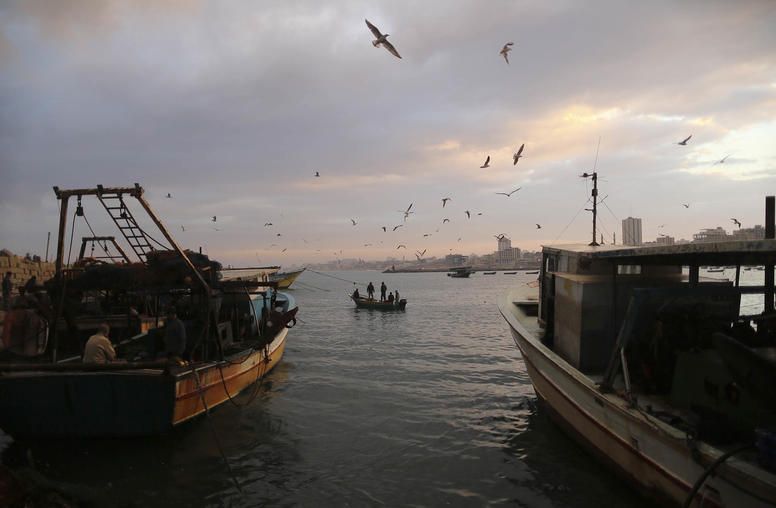Security Sector Transformation in North Africa and the Middle East
On May 10, 2012, the USIP Center of Innovation for Security Sector Governance held its third annual conference. For the second year running, the conference focused on the pressing question of security sector reform in North Africa and the Middle East.
Read the event coverage, USIP Examines Security Sector Transformation in North Africa, Middle East

On May 10, 2012, the USIP Center of Innovation for Security Sector Governance held its third annual conference. For the second year running, the conference focused on the pressing question of security sector reform in North Africa and the Middle East.
Much had changed in the region over the last year: Libya and Yemen joined Tunisia and Egypt on the path toward democratic reform. Syria hung in the balance. The security challenges and needed reforms varied by country, from establishing street-level security and disarming militias to ministerial reform and transitional justice. Yet, across the region, transforming the mandate and institutions of the security forces and their oversight bodies would be a vital step toward establishing peace and democratic rule.
Agenda
9:00 a.m. - 9:15 a.m. Welcome and Opening Remarks
- Ambassador Richard Solomon, President, U.S. Institute of Peace
- Robert Perito, Director, Security Sector Governance Center, U.S. Institute of Peace
9:15 a.m. - 10:45 a.m. Panel of Representatives from the Region
- Magda Boutros, Director, Egyptian Initiative for Personal Rights, Egypt
- Najla Elmangoush, former member of the National Transitional Council's Public Engagement Unit, Libya
- Rana Jarhum, Human Rights Activist, Yemen
- Dr. Murhaf Jouejati, Chairman of the National Consensus Movement and Member of the Syrian National Council, Syria
- Dr. Radwan Masmoudi, President of the Center for the Study of Islam and Democracy, Tunisia
- Hesham Sallam, Researcher, Egypt
10:45 a.m. - 11:50 a.m. Panel of Former U.S. Ambassadors to the Region
- Ambassador Barbara Bodine, Former U.S. Ambassador to Yemen (1997-2001)
- Ambassador Rust Deming, Former U.S. Ambassador to Tunisia (2000-2003)
- Ambassador Deborah Jones, Former U.S. Ambassador to Kuwait (2008-2011)
- Ambassador Thomas Riley, Former U.S. Ambassador to Morocco (2003-2009)
11:50 a.m. - 12:00 p.m. Closing Remarks
Photo Slideshow
Explore Further
- Read a news story about this event
- In the Field: USIP has been on the ground in Libya since June 2011 to train civil society leaders in conflict resolution and hold security and justice workshops.
- Research and Publications: USIP is conducting a series of studies on security sector reform in the region. The first study, on Tunisia, is available here.
- 2011 USIP Conference on Security Sector Tranformation in North Africa and the Middle East: See the conference page and USIP Special Report on the results of the conference.
- USIP's Security Sector Governance Center
Related Academy Courses
- Supporting Police Reform: Capacity Building for Advisers and Trainers (July 10-12, 2012)
- Strategic Economic Needs and Security Exercise (SENSE)



